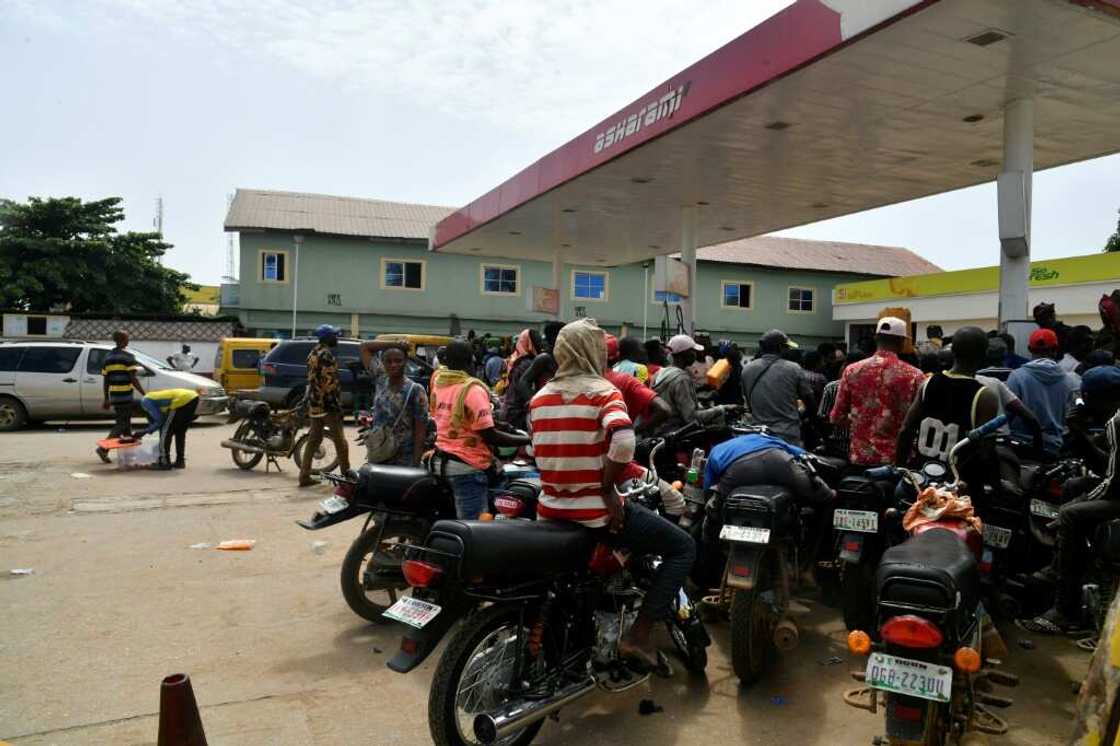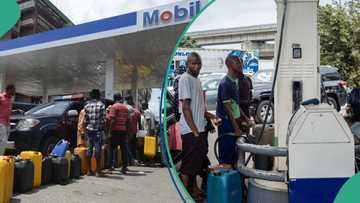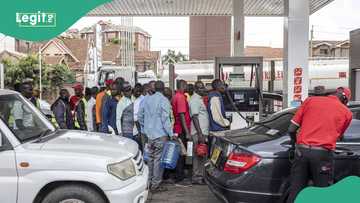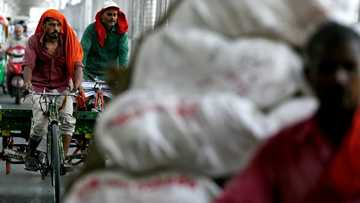State oil company’s 'financial strain' compounds Nigeria’s fuel shortage

Source: AFP
Weeks of fuel scarcities in Nigeria are compounding a cost-of-living crisis, with the state-run oil company acknowledging "financial strain" was hampering supplies.
Olufemi Soneye, a spokesman for government-controlled Nigerian National Petroleum Company Limited (NNPCL), blamed the lingering scarcity on financial issues, in a statement at the weekend.
Nigeria, a major African oil producer, often sees sporadic fuel shortages that cause long lines at NNPCL-run petrol stations that sell fuel at cheaper prices than private operators.
"This financial strain has placed considerable pressure on the company and poses a threat to the sustainability of fuel supply," Soneye said in the statement.
It comes after NNPCL declared a record profit of 3.3 trillion naira (about $2 billion) last month and an initial public denial of its huge debt burden.
As well as vehicles, most households in Nigeria rely on petrol and diesel to power their generators as the public power supply is unreliable and prone to blackouts.
PAY ATTENTION: Сheck out news that is picked exactly for YOU ➡️ find the “Recommended for you” block on the home page and enjoy!
Though an OPEC oil producer, Nigeria imports most of its fuel needs because it has very little working refining capacity.
Africa's most populous country is already struggling under higher living costs after government reforms to end a fuel subsidy and free the naira currency drove a spike in inflation.
"The fuel scarcity is really hard," Ismael Abdullai, 36, a delivery bike rider for a food delivery company, told AFP. "We look, but you always have to look harder to see fuel."
Fuel scarcities have been more frequent since President Bola Tinubu removed the costly fuel subsidies that saw the government pay billions of dollars a year to keep the price of petrol artificially low.
Its price has since more than tripled in some states, with a knock-on effect on food and transport costs.
"The cost of transportation is now very high due to the hike in the price of fuel," a video editor Hogan Samuel told AFP.

Read also
N1,000/litre: Filling stations to adjust petrol pump prices again as FG suggests new pricing
"I spent 1,100 naira ($0.70) to get to the office this morning instead of the usual 750 naira."
'Long queues'
Many stations were shuttered on Monday morning in parts of the commercial capital Lagos. Long lines formed at those that were selling, causing traffic jams.
"We would queue from 6:00 am and still not get fuel until 12:00 or 1:00 pm or 2:00 pm," Sola Adewusi, a 36-year-old private driver told AFP. "It is because of our leaders, they are bad."
Drivers looking to save as much as 15,000 naira on a full tank form longer queues at NNPC filling stations where it is sold at the cheapest rate of 560 naira for a litre. But it goes for as much as 950 naira elsewhere.
"Most of us like to buy at NNPC because of the difference in the price between the NNPC and the private fuelling stations," Abdullai said.
The junior oil minister Heineken Lokpobiri told an energy labour summit in Nigeria’s capital Abuja last week that NNPCL needed to hike the price of petrol it sells to independent marketers, claiming that the current price of 600 naira was fuelling the smuggling of the product out of the country.
"The situation does not make us happy," a painter Uzochukwu Christian told AFP in Abuja. "Government should help us."
PAY ATTENTION: Donate to Legit Charity on Patreon. Your support matters!
Source: AFP




